Homesteading is seen by most as a lifestyle for people living in rural areas. Most don’t even dare to think of becoming homesteaders because of the thought of having to leave the city to go and live in the countryside. Well… that is not supposed to be the case at all. You can be a homesteader right in the apartment you are living in right now.
Please note that I did not include any kind of animals (goats, sheep, etc) or birds (chicken, turkey, etc) since they could make a lot of noise and mess – which could upset your neighbors – and you would probably need permits to have them.
Getting Started
Contrary to popular belief, homesteading is not farming, it’s more than that. Homesteading is living a life of greater self-sufficiency, where you rely mostly upon yourself to survive. So this can be done anywhere, be it in the countryside or in the city.
The very first step you must take for you to be successful with urban homesteading is to Simplify Your Life.
A city is a fast-paced place that constantly needs you to be on your toes at all times. You have now grown, and need to slow the pace down a bit. Homesteading affords you that opportunity. To be successful in being self-reliant in an urban area you must simplify your life, and by that I mean:
- Declutter your living space (also computer and email box).
- Pay off your debt and staying out of it.
- Put away things immediately after you have finished using them.
- Live a healthy lifestyle.
The key to succeeding in your suburban homesteading journey is to start it at a snail’s pace which brings us to our next point.
Start Small
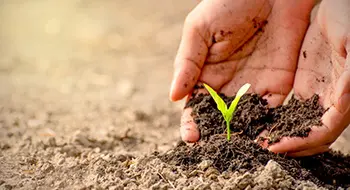 You might have the drive and desire to start your self-subsisting life with a bang and transform your life in an instant, resist that temptation because you will fail. This cannot be done in an instance, you need time. Start small, stay within the allocated budget, and accelerate accordingly as you gain more experience.
You might have the drive and desire to start your self-subsisting life with a bang and transform your life in an instant, resist that temptation because you will fail. This cannot be done in an instance, you need time. Start small, stay within the allocated budget, and accelerate accordingly as you gain more experience.
Apartment homesteading is simply living self-reliant in your apartment home. For this, you can do the following:
A Garden In Your Apartment
The thought of starting a garden in the city let alone in an apartment can be overwhelming for many. Don’t worry, here is a guide on how to start a garden right inside your flat.
- Allocate a spot for your garden – if you have a balcony then that’s your spot; however if you don’t, pick one which has plenty of sunlight.
- Get containers – there are different ways of growing your garden in your apartment but the best option for most people is in containers, popularly known as container gardening. Also you can use the smallest unused spaces in your apartment to grow your props in egg cartons or toilet rolls.
- Decide which crops you will be growing – either you get ideas from books or ask fellow homesteaders.
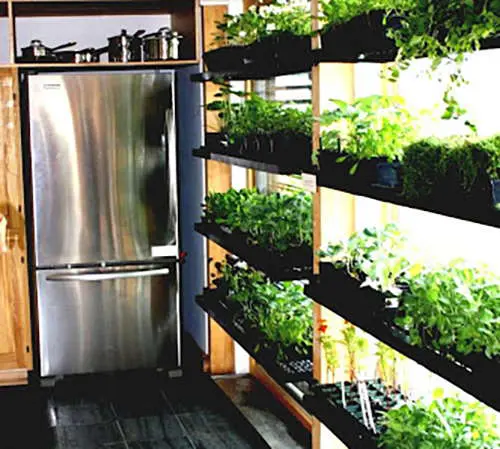
Let’s now move on to how you can drastically reduce your water bill.
Rainwater Harvesting
Rainwater can be used for: watering, washing, cleaning, bathing, cooking and drinking (if filtered).
This is why harvesting rainfall is one of the core activities of homesteading. And it can be done also in an apartment.
To do this, you are going to have to:
- Check if harvesting rainwater is legal in your state.
- Let your neighbors know, the ones living at the ground floor, about your plans to collect rainwater.
- If they agree, note the places where there is a lot of water dripping and stack up a strong base of up to 2 feet there.
- Place the water barrels on the bases. Open the barrels on the top and cover them with a mosquito net to prevent insects from falling into the water.
- Use waterproof duct tape to hold everything intact.
- Install a spigot (tap) about 3 inches from the bottom of the barrel.
- Wait for it to rain, so it fills up and use the water for your garden and other household chores.
- If your neighbors object to your idea, your next option is to catch dripping water from the balcony area, using water collectors and containers. If you don’t have a balcony then your last option is to collect dripping water through the windows.
- As soon as it rains, you place the rain catchment system on your window sill.
- Or place them outside to catch the water (which goes through a tube, right into the containers).
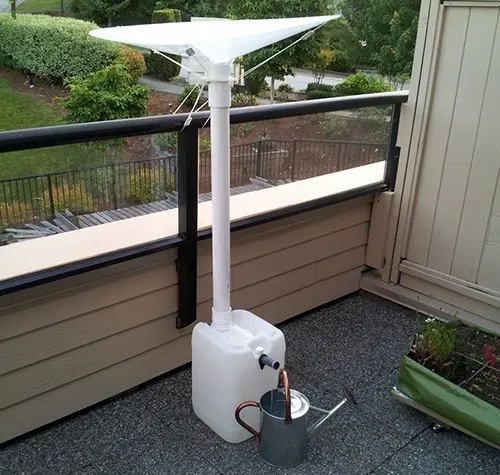
Composting
Your plants are going to need fertilizer. And when I say fertilizer, I mean kitchen waste. Composting enriches the soil, helping retain moisture and suppress plant diseases and pests.
You have already been throwing your kitchen scraps in the bin, so the next new step for you is to:
- Separate your kitchen waste into three bins: Organic waste (peels, rotten fruits, veggies, etc), Toxic waste (plastics, batteries, glass, etc), Recyclable waste (newspapers, cardboard, milk covers, etc).
- Drill holes near the top of your organic waste bin, to allow a bit of oxygen inside.
- Take the organic waste bin and add dry leaves, wood ash, or sawdust to speed up the composting process.
- Make sure your compost is not too dry or too moist at any time. If it’s too moist, add some shredded newspapers. If it’s too dry, sprinkle some water with a watering can.
- Purchase and add earthworms to your compost, a process also known as vermicomposting. This helps eliminate the bad odor that may result from all the yucky stuff.
- Feed your worms a handful of organic waste every two days.
- Don’t stir your mixture for at least two weeks to allow the process of decomposing to take place.
- After these 2 weeks have passed, stir and turn your compost 2-3 times daily, not forgetting to feed the worms.
- After 40 to 60 days, apply your fertilizer to your plants.
- If perhaps you have more fertilizer than you need, donate it to your neighbors or fellow homesteading community.

Decorate Your Apartment With Edibles
Did you know that you can decorate your suburban home with edibles? I bet you didn’t. Decorating with edibles is a great idea, not only will your interior look amazing, but you will also be able to eat from it.
There are a lot of different edible plants you can choose from, here are a few examples:
- Edible flowers – you can use these in your salads.
- Woody herbs – mint, sage, and rosemary don’t attract a lot of attention from insects; they are rich in nutrients and very attractive to the human eye.
- Green peppers – can be used in stews or canned food.
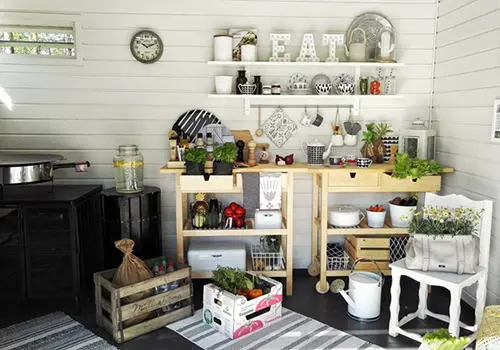
Selling Your Produce
You have labored for quite some time now and results are starting to show through consistent produce from your apartment garden. You have preserved enough produce to last you long enough and your garden is still producing more.
The question is: what next? Sell your surplus produce and start using the money for other important things.
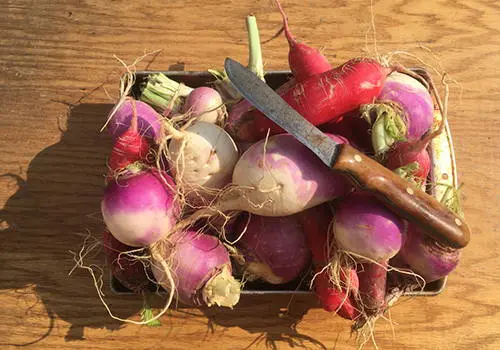
Related: How To Make Money Off-Grid: Making A Living From Your Homestead
Being self-sufficient doesn’t end there, this is just the beginning. You are going to have to equip yourself with a bit more skills to improve your level of independence.
Basic Skills Needed To Become An Urban Homesteader
 Food preservation: you need to learn how to make and what foods last better (also without a refrigerator), and methods to preserve and store them in cool and dark places around your flat.
Food preservation: you need to learn how to make and what foods last better (also without a refrigerator), and methods to preserve and store them in cool and dark places around your flat.- Water purification: if now you have a lot of water stored in barrels or containers, you need to know how to keep it safe and clean in time.
- Making homemade food: learn how to cook and even better, how to can your foods which you grow on your own. This way it will last a long time and you can sell the extra food you have. Start with your neighbors: if they are working long hours, they don’t have time to cook for themselves and will pay extra for a hot and homegrown meal.
Here are some general examples of what extra set of skills you would need in order to be fully self-sustainable:
 Washing clothes by hand.
Washing clothes by hand.- Mending and repairing.
- Using hand tools.
- Self-defense.
- Deliver first aid.
This post is all about urban self-sufficiency. I hope these recommendations will guide and help you transition into becoming the urban homesteader you can be.
Living a self-sufficient life in your apartment is possible, it is only upon you to start.
You may also like:
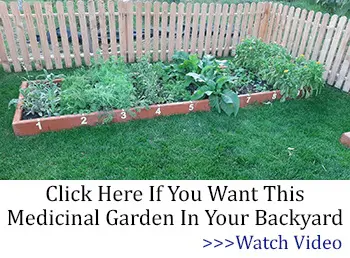 18 Plants That Should Never Be Planted Together
18 Plants That Should Never Be Planted Together
100+ Long Lasting Foods that Can be Stored Without Refrigeration (Video)
How To Build Your Own Wall Hanging Can Rotator
The One Tree That Every Homesteader Should Plant
How To Make A Self-Watering Planter From A Water Cooler Bottle

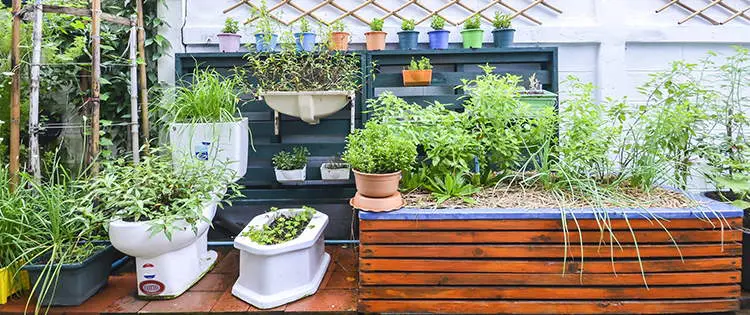
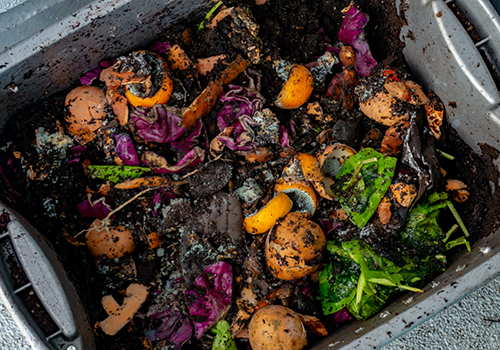
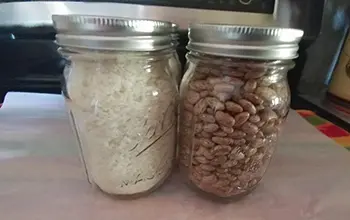 Food preservation: you need to learn how to make and what foods last better (also without a refrigerator), and methods to preserve and store them in cool and dark places around your flat.
Food preservation: you need to learn how to make and what foods last better (also without a refrigerator), and methods to preserve and store them in cool and dark places around your flat.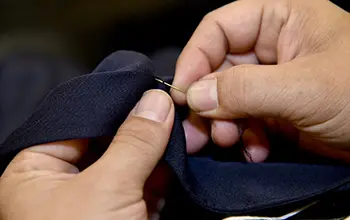 Washing clothes by hand.
Washing clothes by hand.







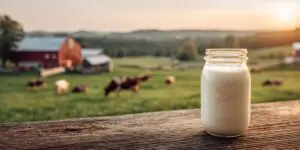
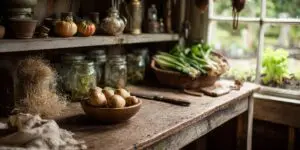
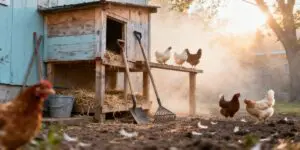

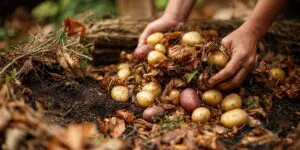
yeah, I always wondered how you could be a homesteader in the heart of the city. Great article, thanks!